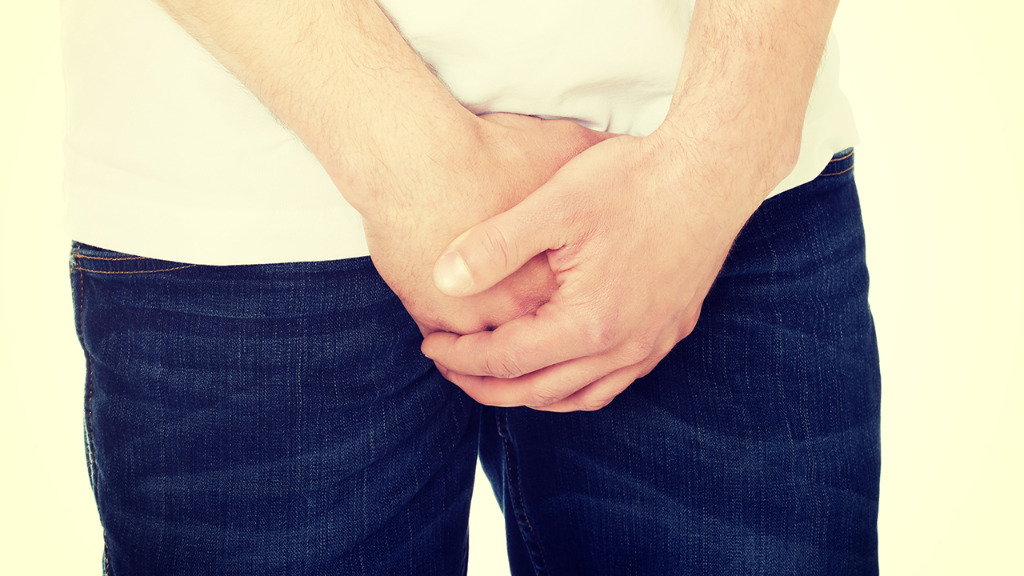Is Prostatitis Scary? Eat More of These Eight Foods to Protect the Prostate!
Date:2024-10-11 click:0
For many individuals, the prostate remains a mysterious organ, unseen and untouchable; however, prostatitis is often demonized as an incurable condition that significantly impacts a patient's quality of life. Symptoms like lower back pain and abdominal discomfort are frequently, though sometimes incorrectly, attributed to prostatitis.
Common misconceptions also link impotence, premature ejaculation, and lower sperm quality to this condition. Understanding the true nature of prostatitis is crucial for effective management and maintaining prostate health.

Even impotence, premature ejaculation, and decreased sperm quality are thought to be caused by prostatitis. Male infertility has also been blamed on prostatitis, intentionally or unintentionally. Because of this, once a patient is diagnosed with prostatitis, they often feel that a catastrophe is imminent and worry all day long.
What kind of organ is the prostate? What abnormalities can the prostate cause in the body? How to maintain the health of the prostate? Today, let's have a closer look at those questions.
The prostate is a gonadal organ that only men have. But it is exceptionally mysterious to the average person, neither visible nor palpable. Male hormones control the growth and development of the prostate. Before puberty, the androgen level is low, so the prostate is immature and small in size. In men, after puberty, the prostate rapidly develops to adult size.
The normal prostate of an adult is the size of a chestnut (about 20ml). The bottom of the prostate is facing upwards, which is attached to the neck of the bladder, and the tip is facing downwards; the urethra passes through the center of the prostate.
Due to the deep position of the prostate gland, surrounded by pelvic protection, the front is attached to the pubic symphysis, and the back is adjacent to the rectum. The patient himself cannot touch the prostate outside the body (such as through massage).
In some cases, doctors will feel the prostate through the rectum to examine the prostate. The specific location of the prostate determines some symptoms of prostate disease, such as prostatitis. Urination is first affected. Symptoms include increased frequency of urination, incomplete urination, painful urination or strenuous urination, and sometimes hematuria. Inflammation-stimulated nerves can cause pain or lower abdominal discomfort.
Herbal medicine Diuretic and Anti-inflammatory Pill is a good diuretic drug, which can solve urination problems such as frequent urination and urgency, and at the same time promote blood circulation and relieve pain caused by infection.
Prostatitis is difficult to cure. To ensure a better treatment effect, men need the correct treatment method and good nursing care, especially regarding diet.
So what should you eat when you have prostatitis?
1. Tomato
For patients with prostatitis, it is beneficial to eat some tomatoes properly. Putting tomatoes, minced celery, and carrots into porridge is good.
2. Mung Bean
Mung bean is a common bean with good value and can help diuresis and anti-inflammation. After the mung bean is boiled, let it cool and drink it.
3. Water Chestnuts
First, wash the water chestnuts and remove the roots, chop them up and smash them, add an appropriate amount of warm water and stir evenly, filter out the slag, and drink the juice twice a day.
4. Fresh Grapes
Fresh grapes are also a good choice. Peel the grapes. After denucleating, smash them, add warm water, and drink.
5. Royal Jelly
Added an appropriate amount of warm water to royal jelly. Male patients can drink it twice a day.
6. White Orchid Pork Soup
First, wash the lean pork meat, cut it into small pieces, add appropriate water with fresh white orchid flowers, and add a proper amount of salt for seasoning. Eat soup and meat once a day.
7. White Orchid Pollen
First, grind the white orchid into powder. Male patients can take it with warm water three times a day.
8. Radish Soaked in Honey
First, wash the radish, peel and slice it, soak it in honey for about 10 minutes, bake it, then soak it and bake it again. Be sure not to burn it, and bake it three times in a row. Male patients can chew several tablets and take them with saline 4 to 5 times daily.
You may also be interested in:



